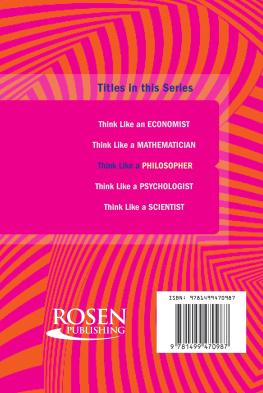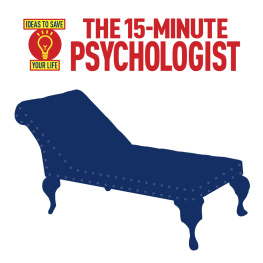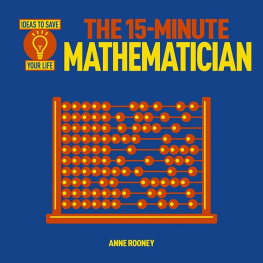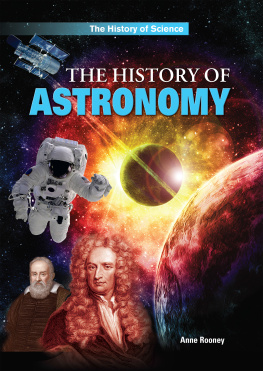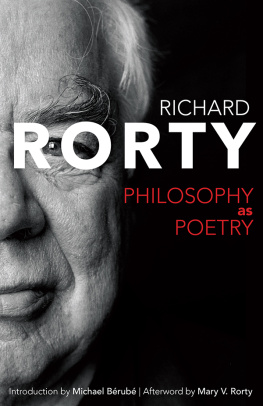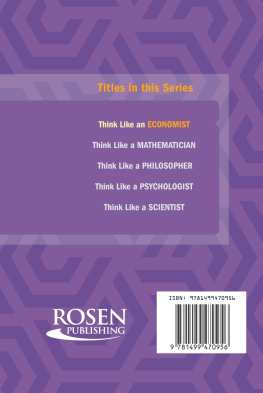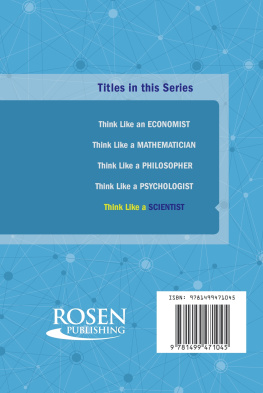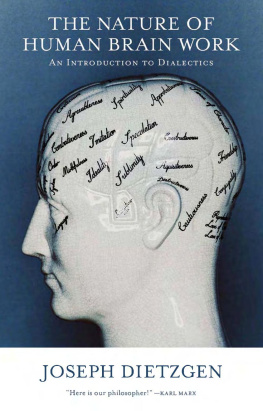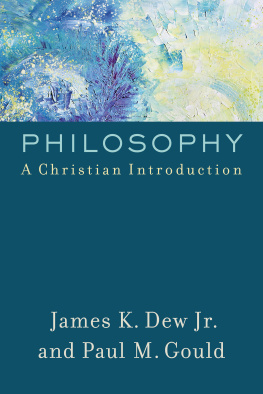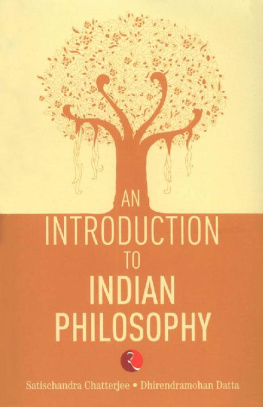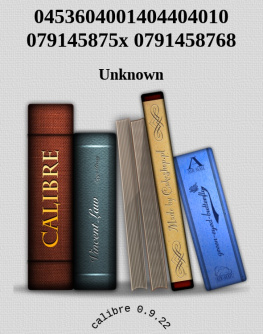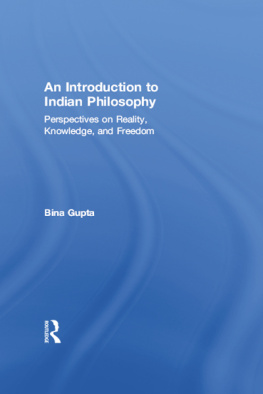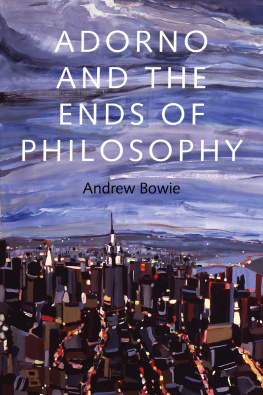
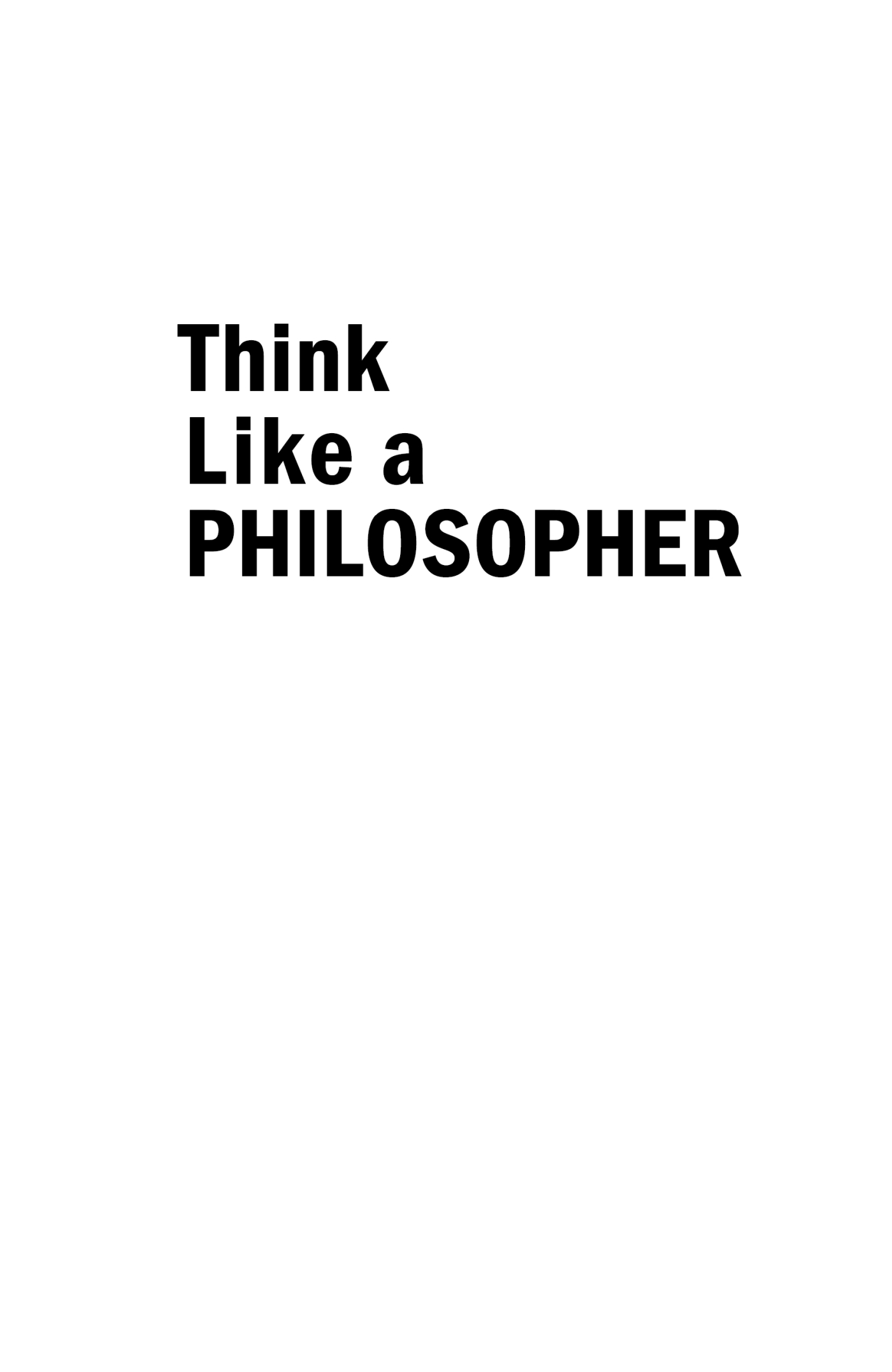
PICTURE CREDITS
Corbis: (Bettmann)
Getty Images:
Ken and Nyetta:
Kobal Collection:
NASA:
Shutterstock: ,
Ale Toovsk:
Published in 2022 by The Rosen Publishing Group, Inc.
29 East 21st Street, New York, NY 10010
Copyright Arcturus Holdings Limited, 2022
All rights reserved. No part of this book may be reproduced in any form without permission in writing from the publisher, except by a reviewer.
Cataloging-in-Publication Data
Names: Rooney, Anne.
Title: Think like a philosopher / Anne Rooney.
Description: New York: Rosen YA, 2022. | Series: Think like a
Identifiers: ISBN 9781499470970 (pbk.) | ISBN 9781499470987 (library bound) | ISBN 9781499470994 (ebook)
Subjects: LCSH: Philosophy--Juvenile literature. | Philosophers--Juvenile literature.
Classification: LCC BD31.R66 2022 | DDC 100--dc23
Manufactured in the United States of America
CPSIA Compliance Information: Batch #CSRYA22.
For Further Information contact Rosen Publishing, New York, New York at 1-800-237-9932.
CONTENTS
INTRODUCTION
What is philosophy for?

Some people think of philosophy as an ivory-tower occupation with no application to the real world. They couldnt be more wrong. Philosophy lies behind every important decision we make and affects all aspects of our lives.
Philosophical thought has created our laws and our interpretations of religious texts. The way we treat criminals, how we structure our schools, the placing of CCTV cameras, the presence of genetically modified ingredients in our food, how much in taxes we pay, and whether we can have an organ transplant are all philosophical issues.
Thinking about ethical, political, and metaphysical questions can be enjoyable and empowering. It is essential if you want to develop informed views on the critical questions of modern life.
Philosophy will help you to work out what you think and why and enable you to become the type of person you believe you should be. This doesnt mean fulfilling an ambition to become a film star or astronaut it means knowing what is important to you and living your life by your own set of standards and priorities. There can be no more important or satisfying aim, no better work than person building, and no better place to start than with yourself and your own brain.
Lots of questions are there any answers?
If we want to know which of two mountains is taller, we can measure them both and compare the results. If we measure accurately, we will have a definitive answer.
Philosophy is not like that. If you say there is a god and I say there is not a god, we can both present our reasons for thinking as we do but there is no way an objective observer can be certain who is right.
We have no way of finding a universally "true" answer to questions such as the morality of abortion or whether democracy is the fairest form of government.

"What I really lack is to be clear in my mind what I am to do the thing is to find a truth which is true for me, to find the idea for which I can live and die."
Sren Kierkegaard, 1835
With no equivalent of the tape measure for measuring mountains, how can we test our ideas? We can work out through reasoned discussion which of two or more conflicting ideas is preferable. To gain anything, you must come to philosophy with an open mind and a desire to learn, to change, or to deepen your views. You may, in the end, find you still hold the same views, but they will have a stronger foundation as they will be rooted in reason and supported by evidence.
Opinion vs. truth
Because there are no definitive, external proofs, some people are inclined to think that philosophical questions are just a matter of opinion. But the lack of answers doesnt make a question a matter of opinion. Instead, philosophy consists of setting forth propositions and exploring or defending them through logic and reasoned argument, refuting counter-arguments, and trying to edge towards the best possible answers.
These answers might well be overthrown by another argument just as a theory in physics might later be replaced by a better theory. In physics, a preferred theory is one that better fits the observed phenomena and enables us to make predictions that turn out to be accurate. For an idea to be sound in philosophy, it must be consistent, without internal contradiction, inclusive, and in many cases, universally applicable.
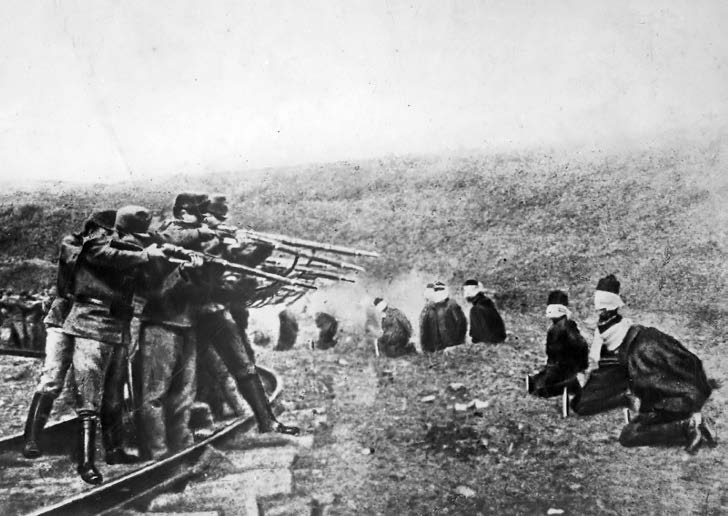
Few philosophers would argue that the murder of innocent civilians in times of war can ever be justified. Viewed from a modern perspective, the Austro-Hungarian armys summary execution of Serbs during World War I was clearly a war crime.
Is it ever true?
If we cant conclusively demonstrate the truth of a philosophical statement, does that mean we cant say there are philosophical truths? This is a question philosophers have asked, and as you might expect, they have come up with different answers.
The question is not limited to philosophy: it is also asked of other disciplines, including physics. Are our discoveries in physics really discoveries of an objective truth, or are they just a convenient way of representing our observations of the world? It is possible that the truth is out there, but we cant be sure.
DANGER PHILOSOPHERS AT WORK
The ancient Greek philosopher Socrates wandered around Athens, teaching philosophy. His frequent debates with the aristocratic youth annoyed the city elders, who saw him making young people more troublesome and argumentative than they needed to be. He was eventually put on trial for corrupting the young and offending the gods. Offered the chance of a reprieve if he would give up philosophy, Socrates refused, further antagonizing the court. He was sentenced to death and took his own life under duress in 399 BC by drinking hemlock, surrounded by his friends. He is considered the originator of Western philosophy.
Persecution is a perennial danger for philosophers. Totalitarian regimes often turn against the intellectuals in their midst. Maos China, Pol Pots Cambodia and Stalins USSR all imprisoned and abused intellectuals because of their dangerous potential to encourage the populace to challenge the authorities. The same accusation had been leveled at Socrates 2,500 years previously. People who dont think are easy to govern and easy to oppress. Philosophers are the intellectual equivalent of arms dealers in the eyes of an unenlightened state.
"Killing people is wrong"
Like science, philosophy tries to approach the truth. If we take the statement "killing people is wrong," we can quickly come up with cases in which some people might not think it wrong when a terminally ill person in pain asks for release, for example. This makes the proposition not universally applicable, so it needs to be adjusted. We could refine it to "killing people against their wishes is wrong." Again, we might come up with objections. What about war? What about judicial execution? Some people will still hold that the very first statement is true, and could provide arguments to support their view, but others might amend the statement again, perhaps to "killing innocent people against their wishes in peacetime is wrong."

